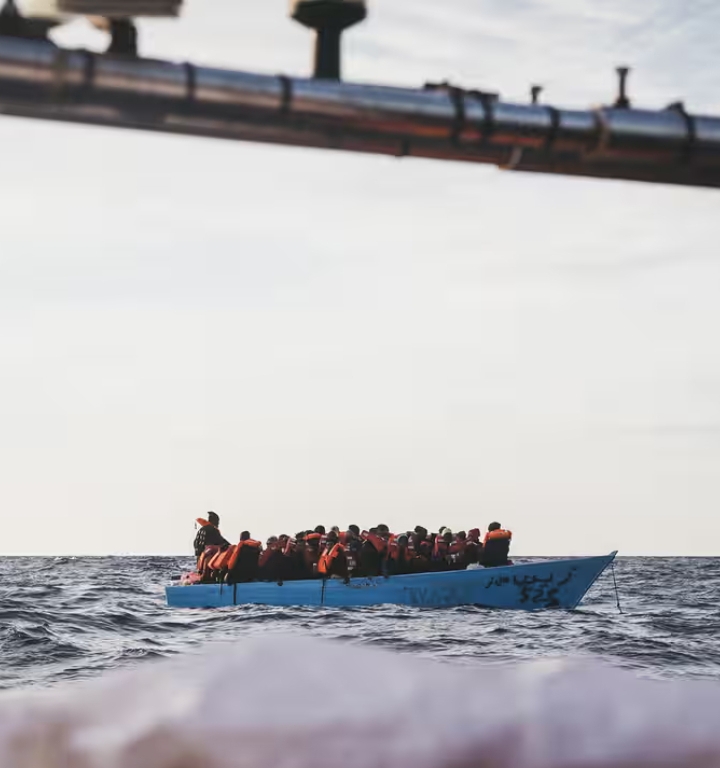The Trump administration plans to deport migrants to Libya, despite its harsh detention conditions. Libya has denied coordinating the deportations. Humanitarian groups have condemned the move, citing the dangers migrants face in Libya.
Trump Administration Plans Controversial Deportations to Libya Amid Harsh Conditions


The Trump administration is reportedly planning to deport a group of migrants to Libya, despite the U.S. State Department’s previous condemnation of the country’s “life-threatening” prison conditions. Libya’s provisional government has denied the reports.
According to Reuters, three unnamed U.S. officials said the deportations could occur this week. Two of the officials indicated the individuals—whose nationalities are not yet known—could be flown to Libya as early as Wednesday. However, they also noted that the plan could still change. The New York Times also cited a U.S. official confirming the deportation plans.
It remains unclear whether Libya would receive anything in return for accepting the deportees. The country is a key transit hub for asylum seekers aiming for Europe. Over the years, human rights groups have documented abuses against migrants in Libya, who often fall into the hands of militias and smugglers. Tens of thousands of sub-Saharan Africans are detained indefinitely in overcrowded refugee centers, where they endure systemic abuse and torture.
In its most recent annual human rights report, the U.S. State Department denounced Libya’s “harsh and life-threatening prison conditions” and “arbitrary arrest or detention.” It specifically cited cases in which migrants, including children, were held without access to immigration courts or legal due process.
Neither the White House, the State Department, nor the Department of Homeland Security responded immediately to media requests for comment.
Aid agencies and NGOs working in the central Mediterranean have voiced outrage at the reports. These groups have long criticized the conditions faced by migrants in Libya and have accused European nations of abetting the situation through collaboration with Libyan forces to intercept and return migrants.
“For 10 years now since our foundation, as a search and rescue organisation, we have continuously highlighted that Libya is not a safe place for migrants and refugees,” said Mirka Schäfer, a political expert for SOS Humanity, a German rescue group. “Evidence from survivors on board our vessel Humanity 1 includes refugees with traces of torture on their bodies, gunshot wounds, pain caused by beatings, physical and psychological wounds while in transit, in detention camps in Libya, or fleeing Libya across the Mediterranean.”
A person aboard the Humanity 1 vessel stated that criminal gangs in Libya “sell people like they would sell bread.”
Luca Casarini, founder of the Italian NGO Mediterranea Saving Humans, condemned the reported deportation, calling it “an endorsement of the horror that has characterised [Trump’s] administration’s policies since the very beginning.” He added, “Libya is one of the most hellish places on earth, where mafias and smugglers operate with the complicity of the European Union. But Trump goes a step further. The American president claims ownership of this horror by deporting people to a hell that is Libya, flaunting his power. It is a move that drags our civilisation toward the abyss.”
On Wednesday, Libya’s Government of National Unity issued a statement rejecting the use of Libyan territory as a destination for deported migrants without its prior knowledge or consent. The government clarified that it had not coordinated with the U.S. on the reception of any migrants.
Trump, who made immigration a central theme of his campaign, has taken aggressive enforcement measures since assuming office. These include bolstering military presence along the southern border and pledging to deport millions of undocumented migrants from the U.S. As of Monday, the Department of Homeland Security reported that 152,000 people had been deported by his administration.
Trump officials have also tried to pressure migrants into leaving voluntarily by threatening them with hefty fines, revoking legal statuses, and sending some to detention facilities in places like Guantánamo Bay and El Salvador.
Last week, U.S. Secretary of State Marco Rubio stated that the administration was dissatisfied with limiting deportations to El Salvador and suggested that more countries would soon be added. “We are working with other countries to say: We want to send you some of the most despicable human beings, will you do this as a favour to us,” Rubio said during a cabinet meeting. “And the further away from America, the better.”
A fourth U.S. official disclosed that the administration had been exploring several countries as possible deportation destinations, with Libya among those considered.
On April 19, the U.S. Supreme Court temporarily blocked the Trump administration from deporting a group of Venezuelans it accused of being gang members. The administration, which has invoked a rarely used wartime law, has asked the court to lift or limit the scope of its order.

 বাংলা
বাংলা  Spanish
Spanish  Arabic
Arabic  French
French  Chinese
Chinese 
